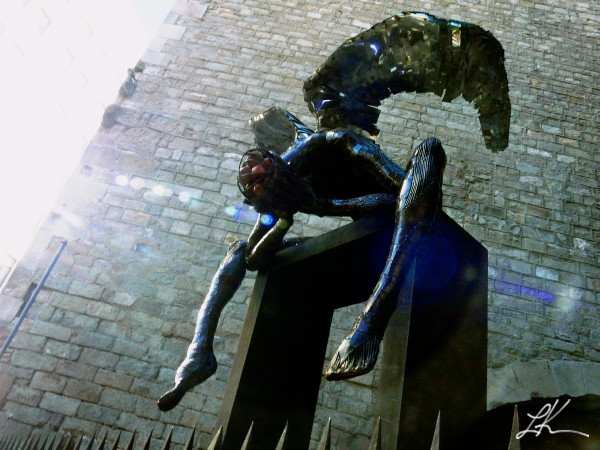
Challenging times bring forth the best and worst in humanity. In our darkest moments, many of us benefit from an image of our better selves or someone we admire who can inspire us to continue the good fight with hope, if not also heroism.
But what makes someone, or certain actions, heroic? I pondered this question while watching Living in Emergency, a sobering documentary about the lives of physicians and surgeons who worked with Doctors Without Borders in Monrovia, Liberia after a civil war as well as in Democratic Republic of Congo following a war in which 5.4 million people were killed.
Rather than glorifying the doctors and the life-saving work they do, the documentary revealed their extreme stress while treating wounds of violence and otherwise treatable diseases that became acute conditions because of lack of healthcare. Their work was vital. In 2010, when the documentary was released, 2 billion people worldwide were without access to essential medical services. The situation has only gotten worse. In 2017, it was estimated by the World Health Organization that 3.5 billion people lacked essential services. The Covid Pandemic has likely increased this number significantly.
While watching the documentary, I thought of the goodwill required to endure extreme hardship for the sake of others. Although most of the doctors seemed to “follow their bliss,” as Joseph Campbell characterized the hero’s journey, they also lived by Campbell’s less-quoted characterization of the hero archetype that is a potential in all of us:
“A hero is someone who has given his or her life to something bigger than oneself.”
It was this capacity to ignore their individual needs in the service of others that was so extraordinary about these doctors, and so inspiring too.
I noted some other traits common to these men and women saving lives in some of the world’s most precarious conditions. I think these characteristics apply to all of us when we choose to live from the hero/heroine archetype:
• Willingness to live with — and learn from — wrong decisions
• Wherewithal to remain committed, even when circumstances don’t make sense or perhaps seem crazy
• Deftness at accepting differences between conditions that exist and conditions you wish existed
• Acknowledge working hard at times may not be a choice, but rather a necessity
• Foster the practice of learning in action
• Tolerance of self-doubt
• Potential for cautious optimism
• Embody real courage, as in the ability to feel fear and act anyway
• Have tough skin and gentle heart
• Maintain a strong sense of justice
• Well-worn habit of selflessness
From watching Living in Emergency, I was better able to identify the hero in so many of us, although not like a Marvel comic, superhuman and unapproachable, but struggling and often feeling exhausted and on edge, yet still showing up every day committed to the good fight.
There are so many heroes and heroines these days. They teach our children, take care of our elders, protect us, keep our cities running, save us from diseases and disasters. Heroes and heroines pave the path to a better future, especially when the light seems dim.
Revised 2022/04/14
© Laura K Kerr, PhD. All rights reserved (applies to writing and photography).
